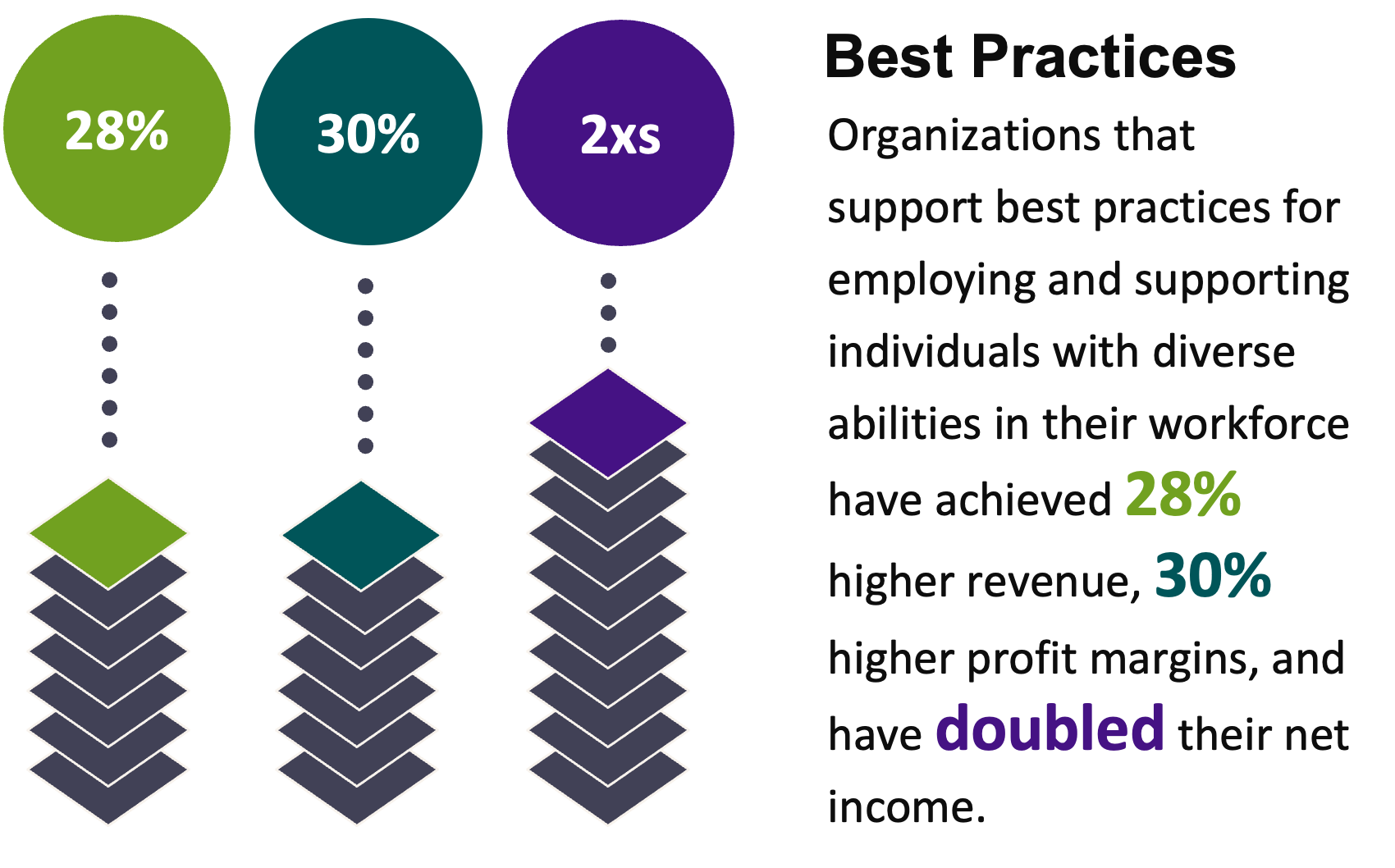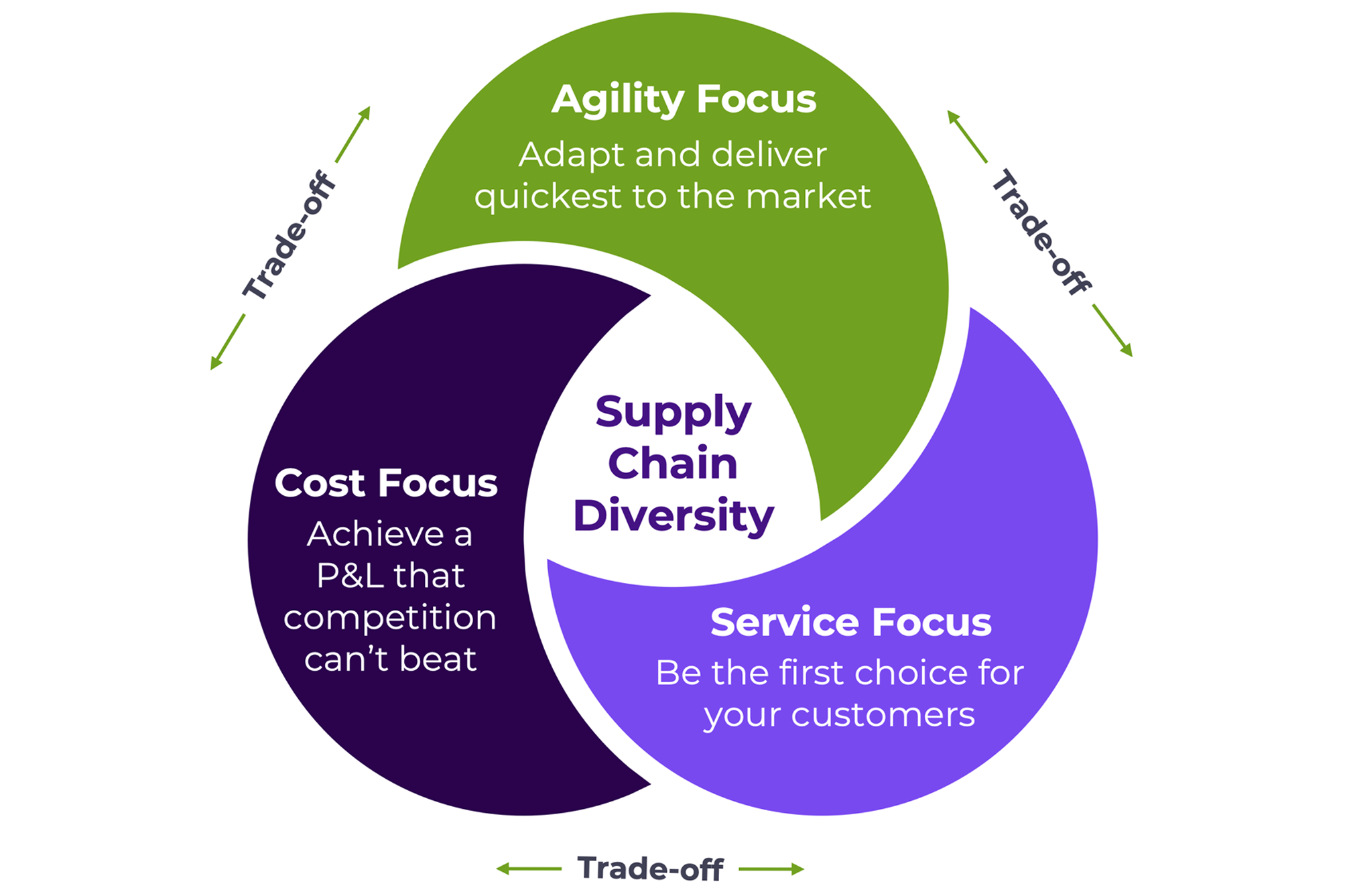With contributions from: Dan Ahern, Kevin Maher, Matt Howard, Shannon Connolly
Supply chain is at the core of the Life Sciences industry and makes up a large proportion of the workforce, usually across multiple continents and cultures. However, the function lags significantly behind others in the sophistication and maturity of Diversity, Equity, and Inclusion (DEI) initiatives. Whilst there are many complex challenges seen, traditional measures tend to be internally focused and overlook the comprehensive workforce spectrum, failing to encompass external suppliers and manufacturers in the end-to-end supply chain. From sourcing raw materials used to manufacture medicines that are stored and distributed to patients, the supply chain plays a vital role. While the complex challenges Life Sciences companies regularly face with efficiently sourcing, tracking, and testing materials on a global scale are widely exposed in the media, DEI is often an overlooked, yet vital component of the pharmaceutical supply chain.
The Life Sciences sector is in a state of flux, navigating the journey from research and development to commercialization. To meet the increasingly intricate demands of the global market, adaptability in pharmaceutical supply chains is essential. While the focus within health industry organizations has traditionally been on cultivating diversity, equity, and inclusion internally, the emerging trend is to integrate these values throughout their entire network, including external entities like suppliers. In a recent article from Harvard Business Review,1 the argument is made that a company’s diversity focus should be valued as much as any other business focus (e.g., innovation, resiliency, or agility). From a data outcomes perspective, organizations with purposeful focus on diversity achieve higher revenue, higher profit margins, and higher net income.

While these outcomes look at the employment of individuals with diverse abilities in the workforce, similar benefits may be evident when DEI is incorporated in the broader ecosystem of a company, specifically within its supply chain. This intersection of DEI with a company’s supply chain enables all-encompassing organizational diversity.
Supplier diversity is a strategic approach that intertwines the concepts of supply chain management and DEI. It involves deliberately creating a diverse supplier base for the procurement of goods and services within any business or organization. Achieving a diverse supply chain requires organizations to actively identify and engage with diverse business entities or suppliers for their procurement needs. By definition, a diverse supplier is a business owned by a traditionally underserved or underrepresented group or individual. Specifically, a diverse supplier is at least 51% owned, operated, and controlled by a person who identifies as part of a minority group (e.g., racial/ethnic minorities, women, veterans, LGBTQ+, etc.). When determining if a supplier is diverse, this is the only qualifying metric, and it does not include the percentage of a diverse workforce. If a supplier meets this metric, they are considered a classified diverse supplier.
Pharmaceutical supply chains vary in diversity based on several factors including geographic location, regulatory frameworks, and market dynamics. The industry, however, has been criticized for its lack of diversity in its supply chains. In a 2023 Benchmarking Report by supplier.io2, the leading data analytics and SaaS provider of supplier diversity management solutions, it was found that companies (across all industries, including Life Sciences) spend, on average, 3.6% with certified diverse suppliers. The lack of diversity and focus on diversifying suppliers in pharmaceutical supply chains is a significant issue because it can limit innovation and competitiveness, as well as create barriers for underrepresented groups to enter the industry. To address this issue, there have been calls for the industry to increase its commitment to supplier diversity, including setting measurable goals and tracking progress. Most large pharmaceutical companies have pledged to increase supplier diversity at their organizations, including Pfizer2 and J&J3, but there is still a long way to go to achieve ubiquitous diversity, equity, and inclusion in the industry.
Supplier diversity is a vital part of corporate social responsibility and can help organizations make a positive impact on the community in which they operate. Additionally, supplier diversity can help companies:
While supplier diversity is becoming increasingly important, many organizations, particularly Life Sciences companies, are struggling to see how to make progress without disrupting the delicate balance of cost, quality, and agility in their supply chain. Targeting and measuring supplier diversity within the supplier selection process is becoming more prevalent to improve supply chain performance. Diverse workforces in the end-to-end supply chain (from supplier to patient) help to improve long-term decision making and finding the right trade-off balance. When engaging with traditional suppliers, it is difficult for organizations to perfectly balance agility, cost, and quality of service and there are often trade-offs. For example, pursuing cost efficiency may involve sourcing low-cost suppliers, but this could compromise product quality. On the other hand, prioritizing quality may lead to higher costs. Contrarily, diverse suppliers can bring different perspectives, innovation, and competitive pricing, potentially reducing costs while fostering agility through varied sourcing options.

Although this is challenging to measure precisely, striking a balance between agility, cost, and quality is a key pillar of an organization’s supply chain and critical to gaining a competitive advantage. Opting for a ‘classified’ diverse supplier might involve a higher initial cost, yet this choice can enhance the benefits previously outlined, offering value beyond the immediate financial expenditure. Making a concerted effort to procure products and materials from a diverse supplier will, in the long run, better enable an organization to balance the relationship between cost, quality, and speed/flexibility, ultimately resulting in more stability.
As Life Sciences companies are forced to become more resilient and agile in today’s ever-changing and demanding climate, DEI remains an utmost priority both amongst a workforce, and more increasingly, in their supplier base.
Vynamic partners with clients to define the supplier diversity strategy, roadmap, and implementation that’s right for their business, ensuring that the end-to-end supply chain (internal and external) from sourcing raw materials through to the product reaching a patient is delivered through a diverse workforce and aligns with the organization’s overall DEI objectives. Contact us to discuss how our team can support your supplier diversity initiatives.
Endnotes:

Vynamic, an Inizio Advisory company, is a leading management consulting partner to global health organizations across Life Sciences, Health Services, and Health Technology. Founded and headquartered in Philadelphia, Vynamic has offices in Boston, Durham NC, New York, and London. Our purpose is simple: We believe there is a better way. We are passionate about shaping the future of health, and for more than 20 years we’ve helped clients transform by connecting strategy to action.
Through a structured, yet flexible delivery model, our accomplished leaders work as an extension of client teams, enabling growth, performance, and culture. Vynamic has been recognized by organizations like Great Place to Work and Business Culture Awards for being leaders and innovators in consulting, company culture, and health. Visit Vynamic.com to discover how we can help transform your
organization or your career.